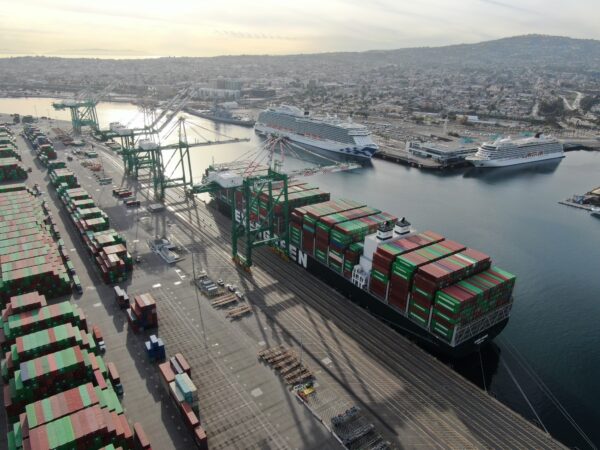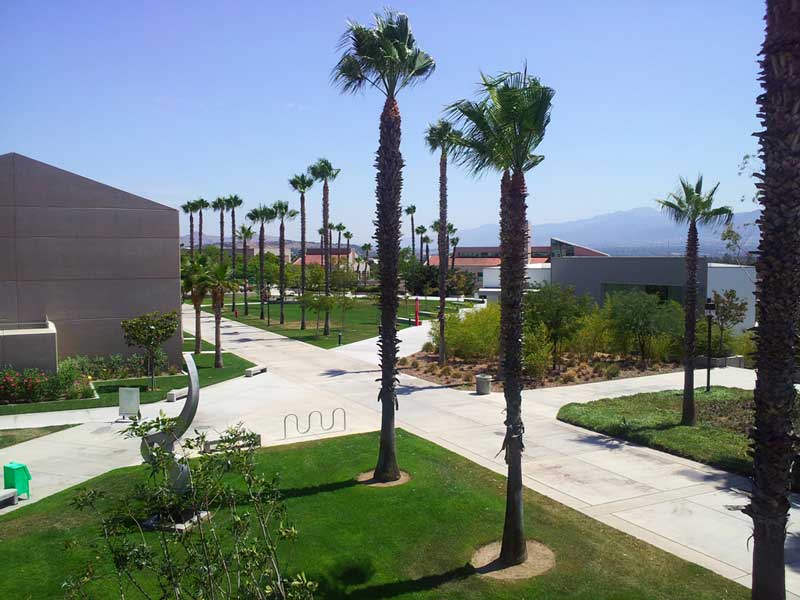The ports of Los Angeles and Long Beach launched a program Friday to encourage the transition to zero-emission trucks by charging cargo haulers for using trucks that don’t meet clean air standards.
The ports will collect a fine of $10 per 20-foot equivalent unit hauled by a truck that does not have an exemption. Zero-emission trucks are exempt from the charge, along with trucks that meet or exceed California’s low nitrogen oxide standard through Dec. 31, 2027. Loaded containers entering or leaving marine terminals by on-dock rail will also be exempt.
The rate is set to expire on Dec. 31, 2034, according to the port.
“The launch of today’s program is an important step forward, yet much more collective work needs to be done,” said Port of Los Angeles Executive Director Gene Seroka. “Transitioning the fleet of trucks that serve this port complex is a $10 billion effort that requires all stakeholders to coordinate on funding, policy and infrastructure. We need to accelerate the technology and develop investment streams — public and private — to support this effort.”
The Clean Truck Fund Rate is expected to collect about $45 million annually for each port, which officials said will be used to accelerate zero-emission technology development. Each port aims to eliminate all emissions from trucks at the port by 2035.
“When it comes to confronting the climate crisis, Los Angeles doesn’t wait for solutions to show up on our doorstep — we forge a path for cities around the world to follow,” said Los Angeles Mayor Eric Garcetti. “As we continue to move record-breaking cargo volumes through our port complex, the need for zero-emissions solutions has never been greater, and I’m proud to see our region leading on this first-of-its-kind step to steer our port toward cleaner air, lower emissions and healthier communities.”
The Port of Los Angeles and Port of Long Beach first set the rate for planning purposes in March 2020, and it was developed as part of the 2017 Clean Air Action Plan Update with outreach to the industry and community.
Port-related emissions in the San Pedro Bay have decreased since 2005 by 90% for diesel particulate matter, 63% for nitrogen oxides and 97% for sulfur oxides, according to the port, which aims to reduce greenhouse gases to 40% below 1990 levels by 2030 and 80% below 1990 levels by 2050.







